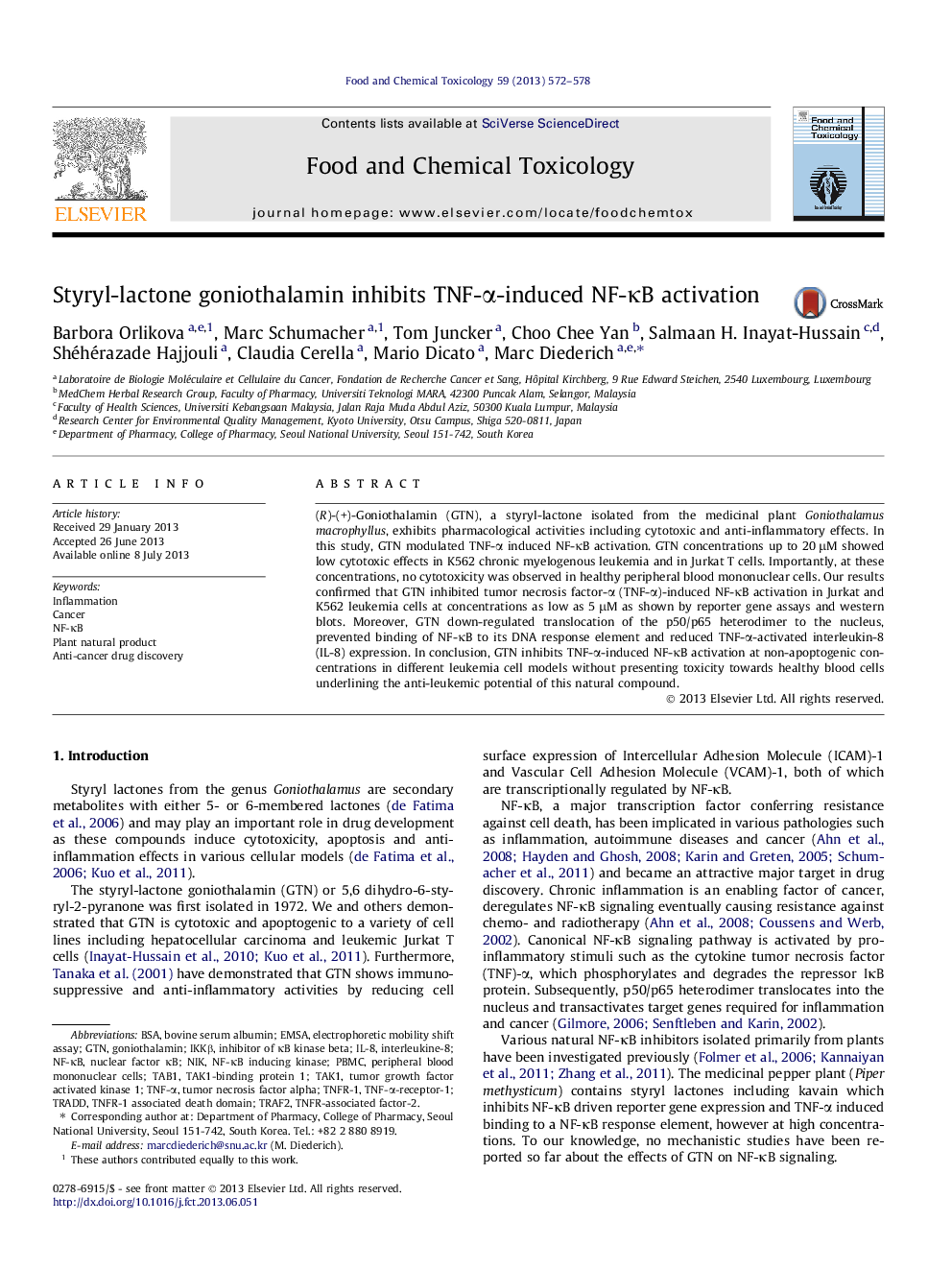| Article ID | Journal | Published Year | Pages | File Type |
|---|---|---|---|---|
| 5851110 | Food and Chemical Toxicology | 2013 | 7 Pages |
â¢(R)-(+)-Goniothalamin (GTN) induces apoptosis in leukemia cells.â¢GTN shows no toxicity towards healthy cells.â¢GTN inhibits tumor necrosis factor-α (TNF-α)-induced NF-κB activation in leukemia cells.â¢GTN reduces the proteolytic activity of the proteasome.â¢GTN inhibits NF-κB activation at non-apoptogenic concentrations in human leukemia.
(R)-(+)-Goniothalamin (GTN), a styryl-lactone isolated from the medicinal plant Goniothalamus macrophyllus, exhibits pharmacological activities including cytotoxic and anti-inflammatory effects. In this study, GTN modulated TNF-α induced NF-κB activation. GTN concentrations up to 20 μM showed low cytotoxic effects in K562 chronic myelogenous leukemia and in Jurkat T cells. Importantly, at these concentrations, no cytotoxicity was observed in healthy peripheral blood mononuclear cells. Our results confirmed that GTN inhibited tumor necrosis factor-α (TNF-α)-induced NF-κB activation in Jurkat and K562 leukemia cells at concentrations as low as 5 μM as shown by reporter gene assays and western blots. Moreover, GTN down-regulated translocation of the p50/p65 heterodimer to the nucleus, prevented binding of NF-κB to its DNA response element and reduced TNF-α-activated interleukin-8 (IL-8) expression. In conclusion, GTN inhibits TNF-α-induced NF-κB activation at non-apoptogenic concentrations in different leukemia cell models without presenting toxicity towards healthy blood cells underlining the anti-leukemic potential of this natural compound.
